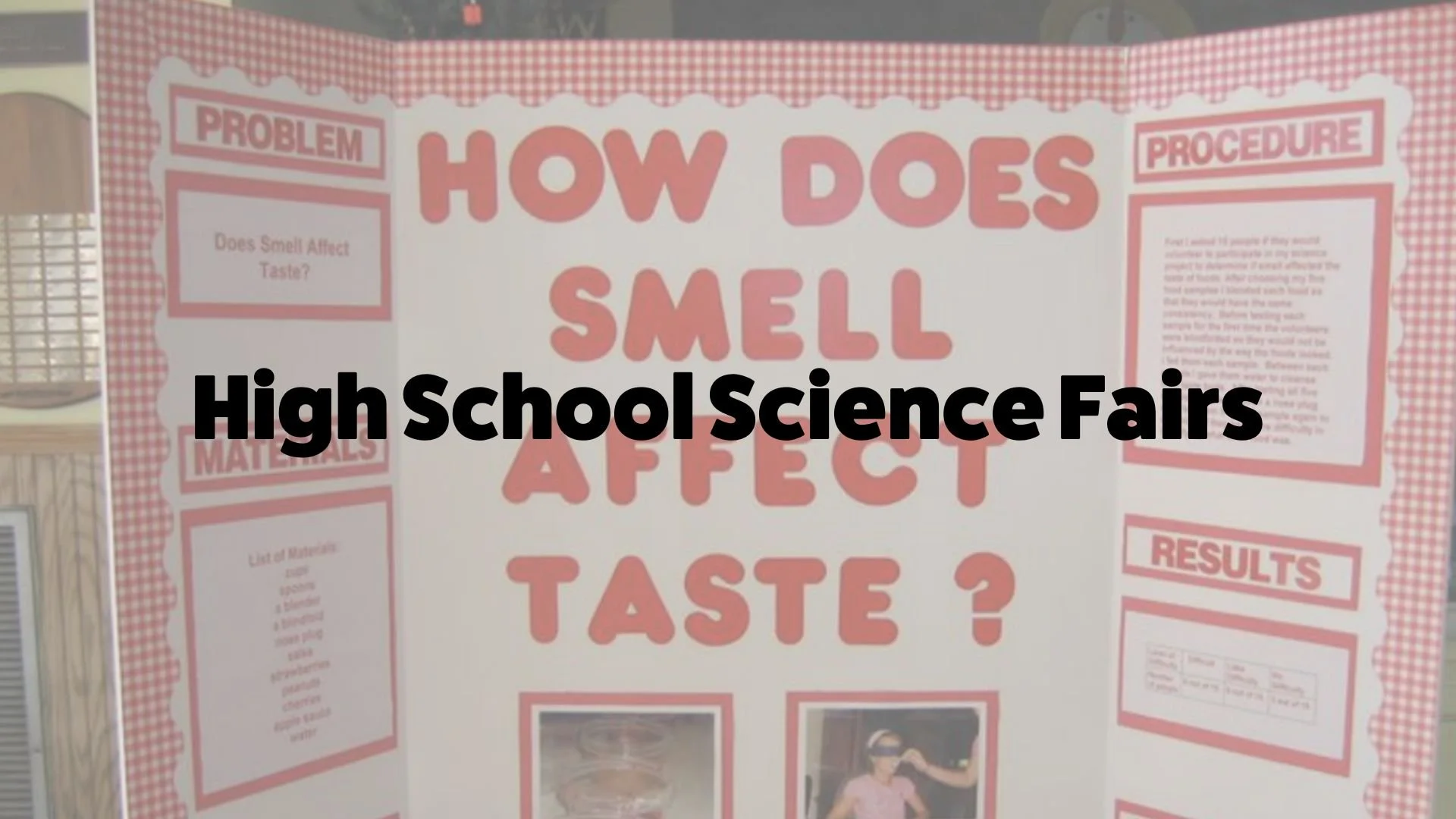High School Science Fairs
High school science fairs are a great way for students to explore and showcase their interests in science, technology, engineering, and math (STEM). These fairs provide students with the opportunity to conduct experiments, analyze data, and present their findings to a wider audience. In this blog, we'll discuss the benefits of participating in high school science fairs and provide some tips for students looking to get involved.
Background image from: https://www.pinterest.com/pin/469500329874673380/
Benefits of Participating in High School Science Fairs
High school science fairs provide students with an opportunity to develop their scientific knowledge and research skills, while also encouraging creativity, critical thinking, and problem-solving. Additionally, participating in science fairs can help students build confidence, gain recognition for their hard work, and possibly even open doors to future educational and career opportunities. By participating in a science fair, high school students will:
Develop Research Skills: Participating in a science fair requires students to conduct research, analyze data, and draw conclusions. This helps students develop skills that will be useful in college and future careers.
Explore Interests: Science fairs allow students to explore topics they're interested in and learn more about them. This can help students identify potential areas of study or careers they may want to pursue.
Build Confidence: Presenting a project at a science fair can be nerve-wracking, but it can also be a confidence-building experience. Students will need to communicate their findings clearly and concisely, which can improve their public speaking skills.
Compete for Awards: Many science fairs offer awards and prizes for outstanding projects. Winning an award can be a great addition to a student's resume or college application.
Different Types of High School Science Fairs
Regeneron International Science and Engineering Fair (ISEF)
The Regeneron International Science and Engineering Fair (ISEF) is the world's largest pre-college science fair, bringing together the brightest high school minds from around the globe to showcase their innovative research projects. Organized by the Society for Science, the competition provides an unparalleled platform for young scientists to present their work, compete for prizes and scholarships, and connect with peers, mentors, and industry professionals.
Learn more about Regeneron ISEF here.
Broadcom MASTERS
Broadcom MASTERS (Math, Applied Science, Technology, and Engineering for Rising Stars) is a national competition for students that recognizes and encourages the development of STEM skills. The program selects the top 10% of science fair projects and invites those students to compete for a chance to win prizes and attend a week-long STEM-focused camp.
Learn more about Broadcom MASTERS here.
ExploraVision (EV)
ExploraVision is a national science competition for K-12 students that challenges participants to use their imagination and creativity to envision future technologies that could solve real-world problems. Sponsored by Toshiba and the National Science Teachers Association, the program encourages teamwork and fosters interest in science, technology, engineering, and mathematics (STEM) education.
Google Science Fair
The Google Science Fair is a global competition that invites students aged 13-18 to submit their innovative research projects and ideas for the chance to win prizes, scholarships, and trips. The program encourages creativity and problem-solving and seeks to inspire the next generation of scientists, inventors, and changemakers.
Local County Science Fair
Local science fairs provide a valuable opportunity for students in a specific geographic region to showcase their scientific research and learn from their peers. These fairs are often less competitive than national or international fairs, allowing students to gain experience presenting their work and receive feedback from judges in a supportive environment.
Tips for Participating in High School Science Fairs
To make the most out of participating in a high school science fair, consider the following tips:
Choose a Topic: Choose a topic that you're interested in and that is feasible given your resources and time. Consider consulting with your science teacher or mentor for guidance.
Conduct Research: Read up on your topic and gather relevant data. Conduct experiments and record your findings in a lab notebook.
Analyze Data: Use statistical methods to analyze your data and draw conclusions. Consult with a statistician or mentor for guidance.
Create a Visually Engaging Display: Create a clear and visually appealing display to showcase your project. Include a title, purpose, hypothesis, methods, data, and conclusions.
Practice Presenting Ahead of Time: Practice presenting your project to family and friends to get comfortable with public speaking. Be sure to keep your presentation concise and engaging.
Follow Rules and Guidelines: Be sure to follow the rules and guidelines of the science fair. This includes deadlines, display size, and safety regulations.
Final Thoughts
In conclusion, participating in a high school science fair can be a rewarding experience for students interested in STEM. It allows students to develop research skills, explore interests, build confidence, and compete for awards. By following the tips outlined above, students can create a successful science fair project and gain valuable experience that will serve them well in college and future careers.
About Inspirit AI
AI Scholars Live Online is a 10 session (25-hour) program that exposes high school students to fundamental AI concepts and guides them to build a socially impactful project. Taught by our team of graduate students from Stanford, MIT, and more, students receive a personalized learning experience in small groups with a student-teacher ratio of 5:1.

